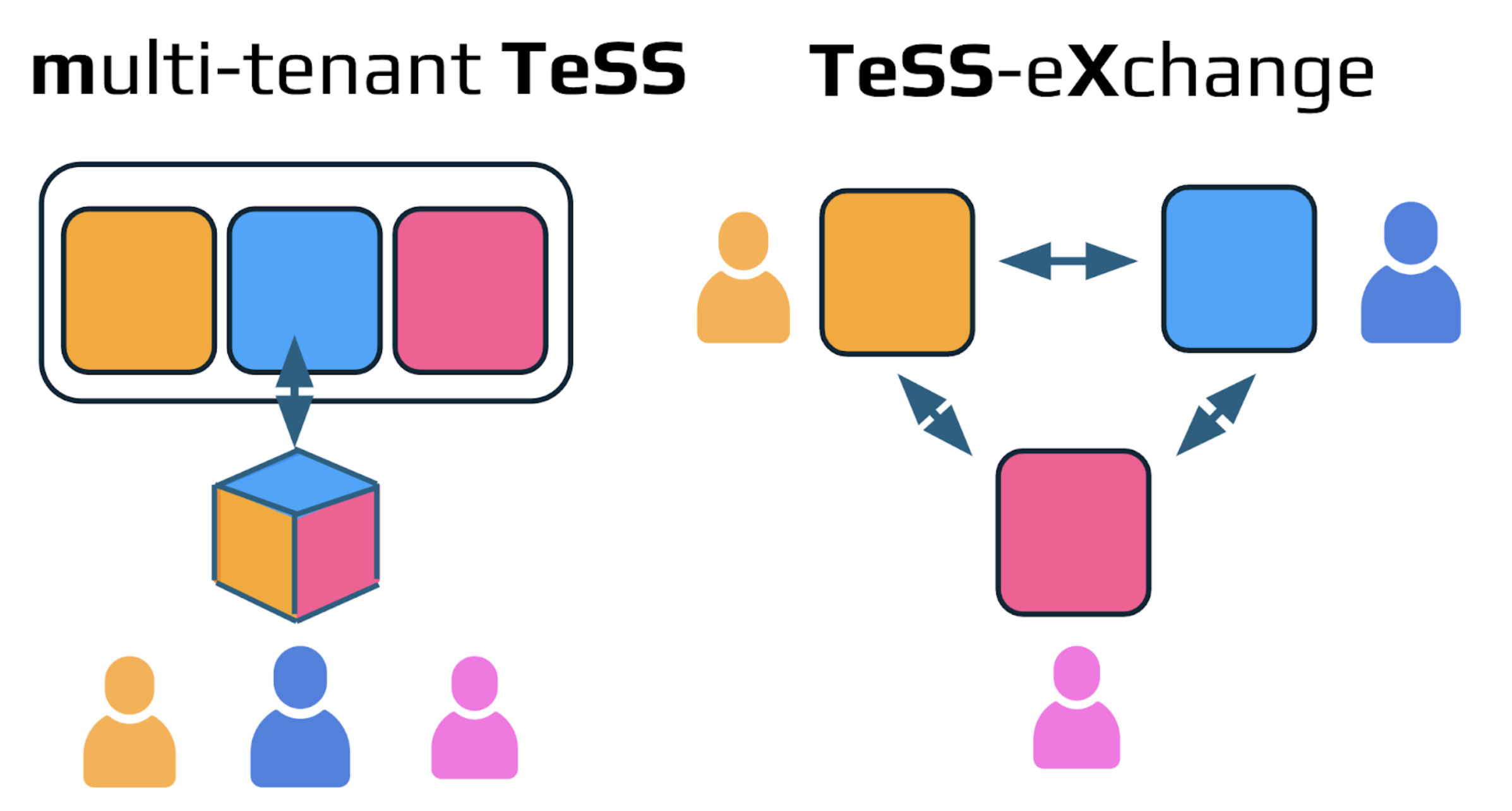mTeSS-X
Scaling training portal federation for RIs through Multi-tenanting and Exchange
- Website: https://elixirtess.github.io/mTeSS-X/
- Started: October 1, 2024
- Duration: 24 months
- Project reference: https://www.oscars-project.eu/projects/mtess-x-scaling-training-portal-federation-ris-through-multi-tenanting-and-exchange
The first OSCARS Open Call for Open Science Projects and Services which concluded in July 2024 has selected only 58 projects for funding out of 264 proprosals. In this highly competitive open call, we are delighted to share that our project mTeSS-X, led by Prof Carole Goble (Head of Node ELIXIR-UK) and Oliver Knodel (with Helmholtz-Zentrum Dresden-Rossendorf) been selected in this highly competitive environment. The project is a partnership between ELIXIR-UK, HZDR, University of Tartu and Limerick with various supporting partners spanning different scientific disciplines. The project spans the European Life Science and Photon and Neutron Science clusters. Further project team members are: Finn Bacall, Phil Reed and Munazah Andrabi (The University of Manchester), Maria Doyle (University of Limerick, Ireland) and Hedi Peterson (University of Tartu, Estonia).
“Improving the findability, accessibility, and reuse of training resources is essential to Open Science. The mTeSS-X project provides a training catalogue platform that means a community can set up its own catalogue with its own identity and exchange content with others, across disciplines.” – Prof Carole Goble
“Moving the two successful catalogues TeSS and PaN-Training closer together again and being able to exchange content on a sustainable basis is of great value in advancing FAIR Open Science. Furthermore, with mTeSS-X we are creating the basis for supporting other communities in the long term.” - Dr Oliver Knodel
About mTeSS-X
The mTeSS-X project will expand upon the existing open-source TeSS platform with the goal of overcoming the fragmentation of training resources across Research Infrastructures (RIs) and the Science Clusters, developed by ELIXIR specifically for building aggregator training portals, and currently used in ELIXIR and PaNOSC training portals - to natively support federation. Such a fully-featured open-source multi-tenanted training platform is expected to be an innovation for building a federation of portals to help break down barriers between thematic communities, promote a more cohesive European research community, and promote FAIR and open training.
The project strives to support the federation of training catalogues using a multi-tenancy approach, and enabling cross-instance content exchange. This will allow RIs and their communities to maintain tailored catalogues with distinct identities, while simultaneously benefiting from a shared global pool of resources.
Solution

mTeSS-X will extend the TeSS platform by introducing multi-tenancy, allowing multiple communities to maintain distinct training catalogues within a shared instance, while preserving their individual identities. Each community will have a tailored view of the global catalogue (with custom look, features, content and integrations with other services), giving the appearance of a standalone portal, while benefiting from shared content and automated harvesting.
The project will also implement TeSS-X plugins to facilitate seamless content exchange between catalogues implemented as separate instances, enabling communities that run their own portals to participate in cross-catalogue resource sharing. This innovative approach will optimise both portal operation and training material dissemination across disciplines. Mixing and matching these setups will enable cross-disciplinary training knowledge exchange, and will optimise portal operation, while serving training providers and consumers.
Scientific Impact
By fostering the federation of interoperable training catalogues, mTeSS-X will significantly enhance the findability, accessibility, and reuse of high-quality training resources. The project will improve the sustainability of training portals by reducing operational duplication and enabling resource-sharing across portals. The adoption of FAIR principles and open training practices will ultimately lead to a more efficient and impactful training ecosystem, benefiting both training providers and consumers: training providers will have their training resources propagated across catalogues and disciplines. Training consumers will have the availability of a much higher amount of FAIR training resources across scientific disciplines.
